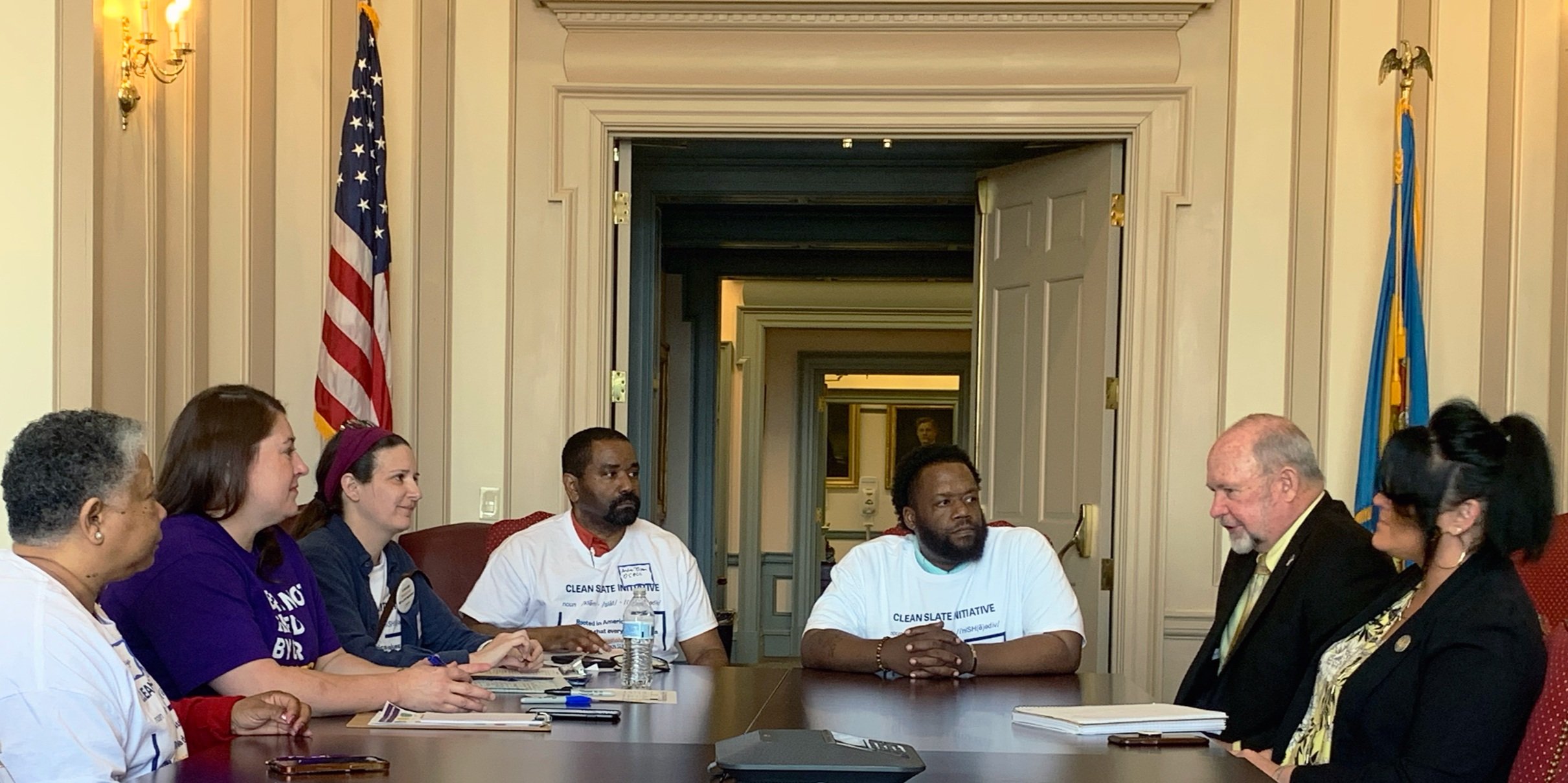Clean Slate Policy Information for Lawmakers
The Clean Slate Initiative is a bipartisan organization supporting legislative campaigns to modernize states’ record maintenance processes.
State-based efforts rely on partnering with:
key stakeholders,
local advocates,
national partners,
businesses,
faith communities,
state agencies,
county clerks, and
lawmakers
to identify technological solutions to streamline a state’s existing petition-based record clearance processes.
Clean Slate efforts are rooted in a belief that people should not face unnecessary and extra-judicial punishments long after they have been arrested or completed a court-imposed sentence.
Records relief offers people a pathway to redemption by opening access to meaningful employment, housing, and education opportunities that allow them to provide for themselves and their families.
Ensuring passage while drafting meaningful and implementable legislation can be challenging for lawmakers - the Clean Slate Initiative is here to help!
FIRST
Clean Slate legislation is not cookie cutter policy. When our coalitions engage with state lawmakers, it is vital to dive deep into understanding your particular record clearance laws, processes, data systems, and flow of information from state to state and agency to agency.
Notably, automation is the process of clearing records, using technology to move records through a system towards clearance. Successfully reforming a state’s record-clearing process requires a collaborative approach with stakeholders, understanding the interconnected processes in a particular state, and developing data-driven solutions.
SECOND
In conjunction with legislative drafting, Clean Slate coalitions and Legislative Champions should engage state agencies, usually the state police and the administrative office of courts, or whoever holds records in a repository. Fortunately, the Clean Slate Initiative can connect you with software experts who help develop systems that streamline and automate the expungement process.
THIRD
A potential Legislative Champion should consider the core components of Clean Slate legislation. Generally, Clean Slate legislation should seek to:
Automate the record clearance process for eligible offenses. Automation must be applied retroactively and for all new records going forward;
When possible, expand the number and types of offenses eligible for record clearance under the petition-based process with the goal of automating as many offenses as possible;
Consider decreasing the period an individual must wait to benefit from record clearance; and,
Discover ways to eliminate or minimize any cap on the number of offenses an individual can clear from their record.
LASTLY
We want legislative champions to be successful! We know that Clean Slate policies can offer real second chances by removing barriers to housing, employment, and education for those impacted by the collateral consequences of a record.
Please contact our Director of Campaigns, Erik Altieri, at ealtieri@cleanslateinitiative.org to connect with a coalition of advocates in your community.




